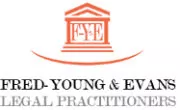Section 54 (1) of the Companies and Allied Matters Act ("the CAMA") provides that a foreign company who has the intention of carrying on business in Nigeria shall take steps to be registered as a separate entity in Nigeria. Until the foreign company is registered in Nigeria, it shall not carry on business in Nigeria or exercise the power of a registered company. It shall not have a place of business or address for service of documents other than for the receipt of notice and other documents which are preliminary to registration under the CAMA. If a foreign company contravenes the provision, its acts shall be void.
This is a carryover from the Companies Act of 1968 which prohibited a foreign company not incorporated in Nigeria from carrying on business in the country. Section 370 of the Act provides that a foreign company shall give notice in writing of its intention to carry on business in Nigeria to the registrar and immediately take steps to incorporate a separate entity in Nigeria. Until the entity is so incorporated, the foreign company shall only have a place of business in Nigeria for the purpose of matters preliminary to incorporation of a company.
The Court interpreted the provisions of Section 370 of the Companies Act of 1968 in the case of Wema Bank Limited v Nigerian National Shipping Line Ltd and Anor (1979) F.R.C.L.R, 133. In that case, a German company applied to join a case as a co-defendant in a matter between 2 companies. The plaintiff contended that under Section 370 (1) of the Act, the German company is not a juristic person having not complied with incorporation under the Act. It has no right of action and cannot be joined as a party to the case. The Court opine that although foreign companies not incorporated in Nigeria are juristic persons under the law of their respective country, they lacked the power to sue and be sued in their own names and could not be joined in the action. The Court held that;
".... a juristic person may be defined as a person or entity known by law. Such a person can sue or be sued. Can it therefore be said that in Nigeria all foreign companies not incorporated in Nigeria are by our laws not legal persons? There is doubt that they are, but before they can be vested with powers of company incorporated in Nigeria one of which is the power to sue and be sued in its own name; such companies must be incorporated in Nigeria. This opinion is based on the ground that a company is a creature of the statute and until the provision of the statute have been fully complied with, the company cannot be said to have come into existence.
The Companies Act No. 51 of 1968 laid down certain provisions to be complied with by a foreign company before it is recognized as registered in Nigeria and after registration, the company can then sue or be sued in its own name since it is then recognized by the law of Nigeria as a legal person"
This caused hardship which was inimical to foreign investments and trade. It was inevitable that the provisions of the CAMA will take steps to cure the hardship and mischief in the Companies Act of 1968. It did in Section 60 (b) of the CAMA which provides that;
"Nothing in this chapter shall be construed as affecting the rights or liability of a foreign company to sue and be sued in its name or name of its agents"
The Nigerian courts interpreted Section 54 of the CAMA vis-à-vis Section 60 (b) of the CAMA in the case of Ritz and Co. KG v Techno Ltd, (1999) 4 NWLR (Pt. 598) 298 the Court of Appeal, per Justice Muntaka-Comassie JCA (as he then was) who delivered lead judgment thus;
"In the result, I hold that it cannot be right as held by the trial court that a foreign company cannot carry on business in Nigeria and therefore cannot sue and be sued in view of the Companies and Allied Matters Act, 1990 until it is properly incorporated. I think there is a fundamental misapprehension of the particular section relied upon by both the trial court and the learned counsel for the respondent. The relevant law to my understanding is that a foreign company which has not been registered in Nigeria under the Act supra cannot carry on business in Nigeria unless and until it has taken steps to incorporate same. Failure to do so, some punishments have been stipulated in the same chapter i.e. chapter 3. I must state clearly that same has capacity to sue and be sued. Section 54 is concerned with "carry on business""
In Bank of Baroda v Iyalabam Co. Ltd, (2009) 13 NWLR (Pt. 785) 551, the Court held that Nigerian courts recognize as juristic persons, corporations established by foreign law by virtue of the fact of their creation and continuance under and by virtue of that law. Such recognition is encouraged by comity of nations and such foreign company is permitted under the proper instruments of the foreign country. In Saeby Jernstoberi MFAS v Olaogun Enterprises Ltd, (1999) 14 NWLR (Pt. 637) 128, the Nigerian Supreme Court, per Ayoola JSC explained the rationale of a foreign company's right to sue or be sued in a Nigerian courts thus;
"The principle of law that a foreign corporation, duly created by laws of a foreign State recognized by Nigeria may sue or be sued in its corporate name in our courts is part of the Common Law. The suggestion that a foreign company duly incorporated outside Nigeria should first be registered in Nigeria under the provisions of the Companies Act 1968 (which was the applicable statute) dealing with registration of foreign company as defined by that Act is too preposterous and patently inimical to international trade to merit any prolonged or serious consideration. It suffices to say that the Appellant Company with its registered address in Copenhagen properly sued in its corporate name"
From the foregoing, the current law is that a foreign company must be registered in Nigeria to carry on business in Nigeria. Nevertheless, non-registration of a foreign company does not prevent it from suing a Nigerian or Nigerian company before Nigerian courts or prevent a Nigerian or Nigerian company from suing it before Nigerian courts. This is in line with international best practices.
The content of this article is intended to provide a general guide to the subject matter. Specialist advice should be sought about your specific circumstances.

